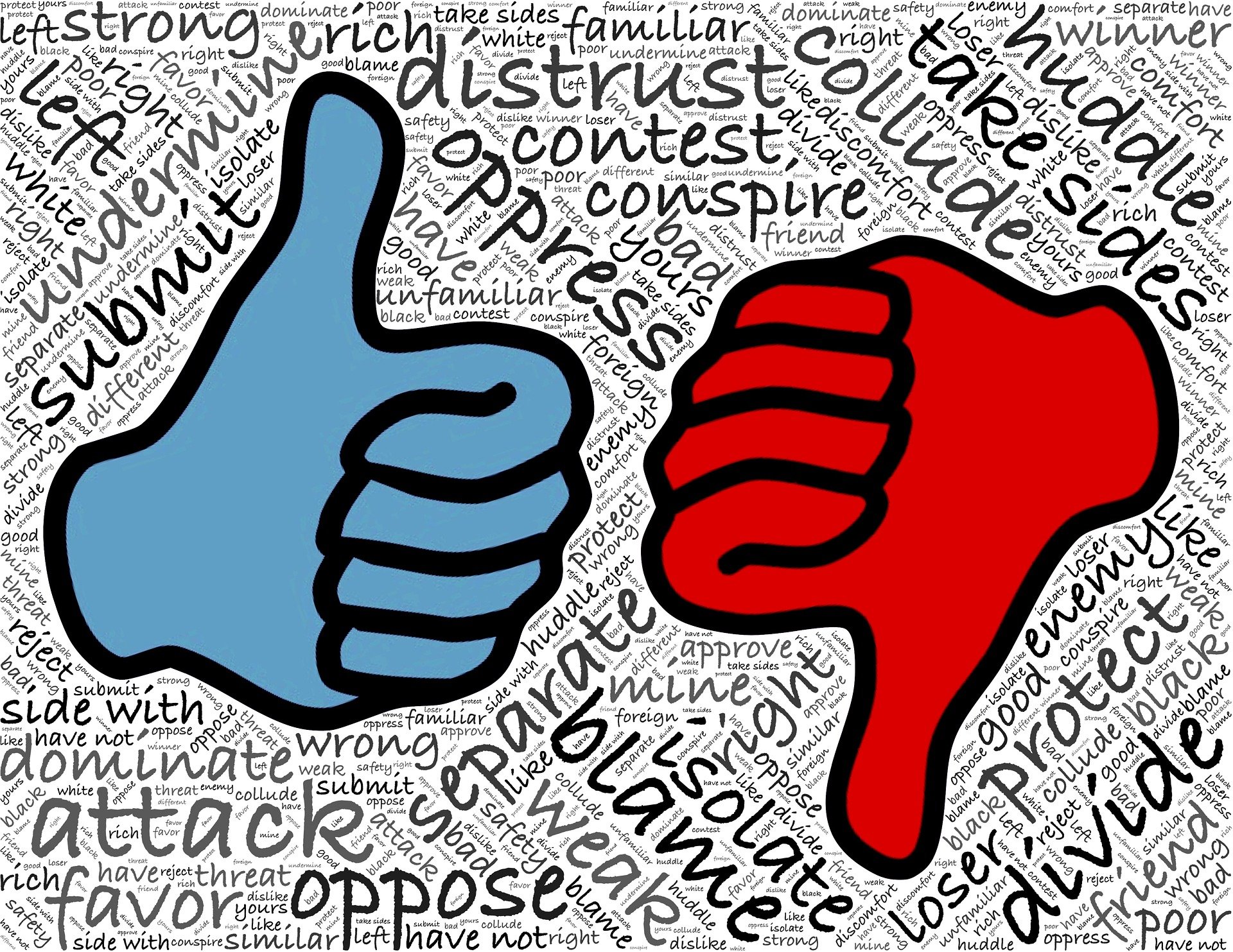
My aim is to inspire people around the world one blog post at a time.
This is the place to nourish your mind, heart, body and soul.
-
It all begins with an idea. Maybe you want to launch your own business. Maybe you want to escape the rat race and find peace in simple living. Maybe you want to improve your health. Whatever your dream is, it is valid!
-
Dreams without action are just dreams. But taking action doesn’t necessarily mean quitting your job and burning the ocean. Small steps matter. It is the ability to plug away consistently at something over time that is the key. Small steps add up. You’ll get there!
-
If you keep building slowly and consistently with passion each day, adding value that matters to you, then the growth will take care of itself. The keys to achieving success are patience and avoiding complacency.

Dominoes on the World Stage
Imagine a line of dominoes, each intricately linked to the next, a delicate balance maintained by mutual dependence. You nudge the first one, and before you know it, they're all toppling over, one after the other.
This visual metaphor aptly describes the interconnected nature of our globalised world. Economies, societies, and countries are so interwoven that an event in one corner of the globe can set off a chain reaction, impacting far-flung regions in unexpected ways.
At its core, the global tapestry of economic, social, and political threads represents an interconnectedness that brings undeniable benefits, such as increased trade, cultural exchange, and technological advancement.
However, it also means that shocks in one area can propagate swiftly across borders, causing widespread disruption.
To illustrate this, let's look at the domino effect in action by exploring some real-world examples …

The Prisoner’s Dilemma
One of the fascinating insights from Game Theory comes from Professor Robert Axelrod, whose work reveals profound truths about cooperation, conflict, and human behaviour.
The "Prisoner's Dilemma" is a classic example of game theory, in which two individuals must decide whether to cooperate or betray each other.
It illustrates why two rational individuals might not cooperate, even if it appears that it is in their best interest to do so.
Two criminals are arrested and interrogated separately in the traditional Prisoner's Dilemma. Each can betray the other by testifying that the other committed the crime or remain silent.
If both betray each other, they each serve two years in prison.
If one betrays while the other remains silent, the betrayer goes free while the silent accomplice serves three years.
If both remain silent, they each serve only one year.
The catch is that the best collective outcome arises when both cooperate, but the best individual outcome happens if one betrays while the other cooperates.

How Different Are The Seven Generations Alive Today?
So, be honest, have you ever rolled your eyes when you heard someone say, "Back in my day ..." or "The children of today ... "?
Have you ever said these things?
Mmmm, I thought so.
So, how about we stroll through the seven generations alive today and see what we can learn?
As each generation brings its unique perspective, values, and quirks to the table, shaping the world in its own way, differences emerge, and with them, perceptions are formed.
Perceptions that are not always accurate.

The Stories We Tell Ourselves
Most of us like to think we are unique or special in some way. And yet, we often avoid telling others our raw, unfiltered life stories.
Stories that would reveal our complex, multi-faceted, imperfect selves if we did.
Stories that would leave us with a permanent vulnerability hangover, especially if they are stories that demand that we reveal our hidden emotions.
Instead, we seek to explain our lives in ways that we and others can understand and appreciate within a framework of acceptable societal norms.
Ways that limit our exposure to possibly being misunderstood, embarrassed or judged. Ways that demand we take a risk and perhaps fail.

Mindset Matters … Way More Than You Think
In 1945, the world record for running one mile (1600m) was 4 minutes and 1.3 seconds, set by Gunder Hagg of Sweden.
And that's where the record got stuck for the next nine years, seemingly unbreakable to many.
Finally, on 6 May 1954, in Oxford, England, Roger Bannister became the first person to break the 4-minute barrier in a time of 3 minutes and 59.4 seconds.
But this isn't the exciting part.
What is fascinating is that soon after Bannister's historic feat, other runners were inspired to follow suit, and they did so quickly.
How was this possible?

Why Are You So Defensive?
Have you ever found yourself in a situation where you acted in a way that seemed out of character? Maybe you avoided confronting a problem or reacted in anger when you felt hurt.
These are all examples of psychological defence mechanisms at work—the shields we unconsciously use to protect ourselves from uncomfortable feelings, thoughts, or situations.
So, why do we do this? Why do our minds employ such complex mechanisms to shield us from reality?
Well, it all comes down to survival, both physical and emotional.
Evolutionarily, our brains are wired to keep us safe and ensure our well-being. However, not only external threats trigger these defences; internal conflicts and distressing emotions can also prompt their activation.
So, let's delve into some of the most common psychological shields and explore how we use them in our lives.

It’s Time to Take a Pill (But Not a Chill Pill)
In life, there's this idea that sometimes we need to take a "Red Pill".
The metaphorical "red pill" derives from the iconic scene in the movie "The Matrix," where Neo is offered a choice between a red pill, symbolising truth and awakening, or a blue pill, representing ignorance and conformity.
This allegory has since been appropriated to describe confronting harsh realities, even when they challenge one's beliefs or comfort.
Therefore, the red pill concept is about stepping out of a comfortable but unrealistic way of thinking—a symbol for facing harsh truths even if they're tough to handle.

Four Types of Men - Which Do Women Prefer?
Understanding the various types of men and their associated characteristics can offer valuable insights into their behaviour and what you can expect from a relationship with them.
These classifications of men often stem from social and evolutionary psychology, cultural norms and societal expectations.
So, let's delve into the different kinds of males and explore why women may prefer one type over another.
First off, we have the alpha male. This term originates from the study of animal behaviour, particularly in wolf packs where the alpha male is the dominant leader.
In human society, alpha males are typically confident, assertive, and ambitious.
They're natural leaders who command respect and admiration from others. Alpha males tend to be outgoing, competitive, and goal-oriented, often excelling in positions of power and authority.
They're decisive decision-makers, not ones to waver or second-guess themselves.

You May Be Smarter Than You Think
Most people are familiar with the concept of Intelligence Quotient (IQ).
IQ (Intelligence Quotient) tests have been the litmus test for intelligence for the last Century.
But IQ tests can inaccurately measure an individual's intelligence and cause problems, including low confidence, unrealistic expectations, and a generally flawed understanding of a person's potential.
After conducting the most extensive online intelligence study on record, a Western University-led research team has concluded that measuring one's intelligence quotient or IQ by a singular, standardised test is highly misleading.
So, is there a way to look at intelligence differently?

Who Will Cry When You Die?
Have you ever asked yourself, "Who will cry when I die?"
In Robin Sharma's book Who Will Cry When You Die? Life Lessons from the Monk Who Sold His Ferrari", he delves into the essence of living a meaningful life and leaving behind a lasting legacy of love and contribution.
In today's fast-paced world, it's too easy to get caught up in the hustle and bustle of daily life, chasing after success, wealth, and status.
We often find ourselves misled into focusing our energy and effort on things and people that ultimately don't matter much in the grander scheme.
Through a collection of short, insightful chapters, Sharma offers profound insights and actionable advice to help individuals live a more meaningful and fulfilling life.
Here are ten key lessons from the book …

A World Without Ethics
Imagine you're faced with a dilemma.
It could be as simple as deciding whether or not to cheat on a test or as complex as making a corporate decision that could impact thousands of lives.
Ordinarily, your decisions should be based on a combination of factors like your rational thought processes and the values and ethics you subscribe to.
But what happens if this fails?
Let us look at examples of companies who have got things wrong and the devastating consequences that can result when ethical considerations are sidelined in favour of short-term gains or competitive advantage.

An Introvert in a World Built for Extraverts
In Susan Cain's illuminating book, "Quiet: The Power of Introverts," she refers to "The Power of Introverts in a World That Can't Stop Talking".
Introverts and extroverts are personality types that describe how people gain energy and interact with the world around them.
Introverts tend to recharge by spending time alone or in small groups. They often prefer quieter, more introspective activities like reading, writing, or spending time in nature.
On the other hand, extroverts gain energy from being around other people and engaging in social activities. They tend to be gregarioius, talkative, and enjoy being the centre of attention.
So with this in mind, grab your favourite cosy spot and settle in as we explore the book's key themes with supporting examples that celebrate the power of introversion.

Stupidity is Universal and Dangerous
"Remember, when you are dead, you do not know you are dead. It is only painful for others. The same applies when you are stupid." - Ricky Gervais
Imagine a world where stupidity isn't a random occurrence but a predictable force governing human behaviour.
It sounds bizarre, right?
Well, that's precisely what Professor Carlo M. Cipolla, an Italian economic historian, dared to propose back in 1976.
He published an essay describing the fundamental laws of what he perceived as the greatest existential threat to humanity: stupidity.

The Boardroom Psycho
Imagine a world where the boardroom is a battleground, and the players wear suits instead of armour.
In "Snakes in Suits: When Psychopaths Go to Work," authors Paul Babiak and Robert D. Hare offer a chilling glimpse into this reality—one where psychopathy infiltrates the corporate landscape and leaves a trail of manipulation and destruction in its wake.
Contrary to popular belief, psychopathy is not solely confined to the criminal underworld.
While some psychopaths may engage in criminal behaviour, many others operate within legal boundaries, holding positions of power and authority in society.

You’re Biased and I’ll Prove It
Bias is a word that often carries negative connotations, suggesting unfairness, prejudice, and discrimination.
But bias is inherent in all of us, rooted in our cognitive processes, social conditioning, and lived experiences.
While biases can indeed lead to unfair treatment or distorted judgments, they also serve as adaptive shortcuts that help us navigate the complexities of the world around us.
So, let's explore the nature of bias, why it exists, and how it manifests in our everyday lives. We can do this by looking at twelve of the most common biases (there are many more) that influence human behaviour.

Everyone’s Entitled To My Opinion
So, surprise, surprise … we all have opinions.
Some are as harmless as debating the best flavour of ice cream, while others touch on more substantial matters like climate change, moral justice, or various scientific theories.
But what exactly constitutes an opinion, and how much weight should we assign to them?
Let's begin by taking a trip back to ancient Greece, where the wise philosopher Plato noted that opinions are beliefs that lack the certainty of knowledge.

Kill the Culture Crocodiles
"Culture Eats Strategy for Breakfast" - Peter Drucker
The above is a well-known and often quoted saying attributed to the renowned management consultant Peter Drucker.
Paradoxically, many companies have some giant crocodiles lurking in the waters of their company culture. Sadly, these crocodiles prey on the harmony and vitality of the organisation and pose a significant threat to its well-being and success.
A toxic organisational culture left unchecked will ultimately destroy an otherwise great business.

Intuitive Leadership in a Sensory World
Imagine standing at a crossroads and trying to decide which path to take.
Sensing people are the ones who carefully observe their surroundings, noting every detail—the texture of the ground beneath their feet, the rustle of leaves in the breeze, the faint scent of flowers in the air. They rely on concrete data and tangible information to guide their decisions, like a well-worn map that leads them from point A to point B.
On the other hand, intuitive people are the dreamers, the visionaries who see beyond the surface and into the realm of possibilities. They're less concerned with the details and more focused on the big picture, relying on gut instincts and flashes of insight to guide their decisions.

Karma is a Bitch
The phrase "Karma is a Bitch" emerged as a colloquial expression to convey the idea that negative actions or intentions can come back to haunt us in unexpected and often unpleasant ways.
It suggests that when someone engages in harmful behaviour or mistreats others, they will eventually face repercussions.
The use of the word "bitch" in this context emphasizes the harsh or punitive nature of karma's consequences.
It also implies that karma has a way of delivering justice with a bite, especially to those who have behaved unfairly or maliciously towards others.
But where does the concept of karma come from?

Why We Judge What We Don’t Know
Have you ever felt that people are quick to judge? Are you sometimes quick to judge?
Have you ever wondered why we judge what we don't know or understand?
Even the most hardened criminal gets his day in court, where all evidence is carefully weighed before judgment is pronounced.
And yet, as humans, we struggle to extend the same courtesy to one another.
The fifth habit Steven R. Covey mentions in his best-selling book "The 7 Habits of Highly Effective People" is "Seek First To Understand, Then Be Understood".
I would argue that for most of us this is not the habit we have cultivated.
So, what are the reasons behind our inclination to pass judgment on what we don't know or understand?
